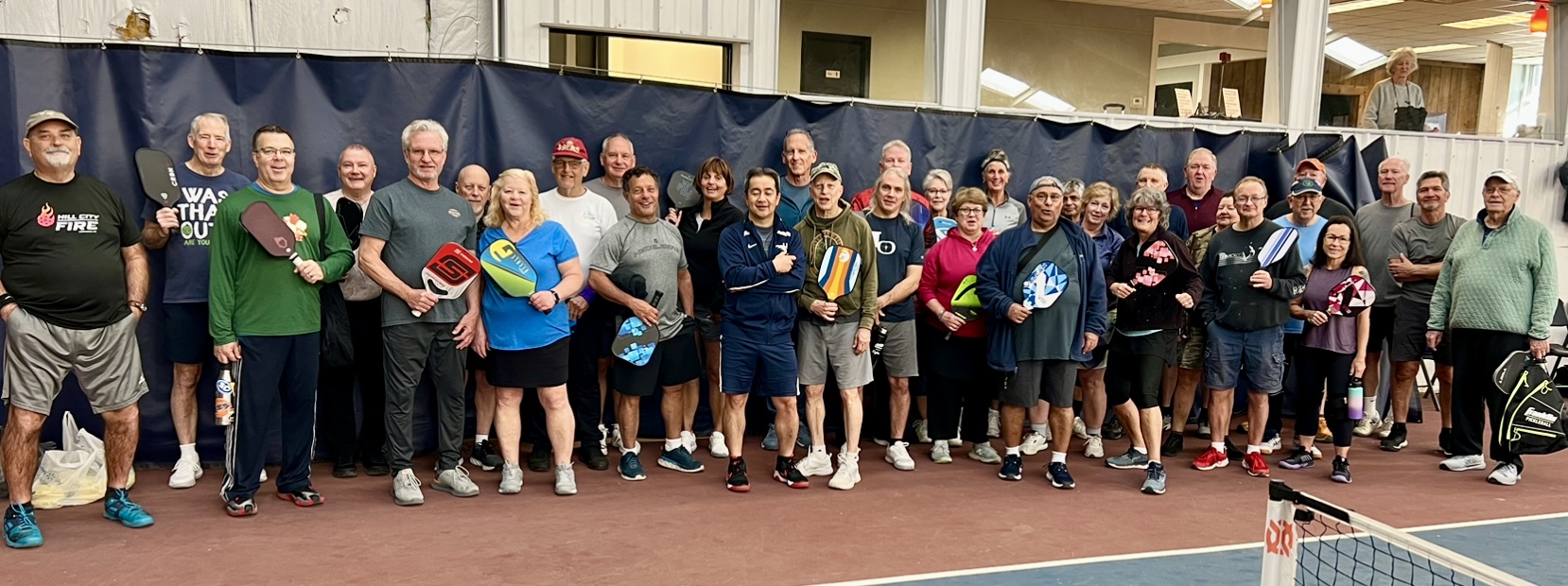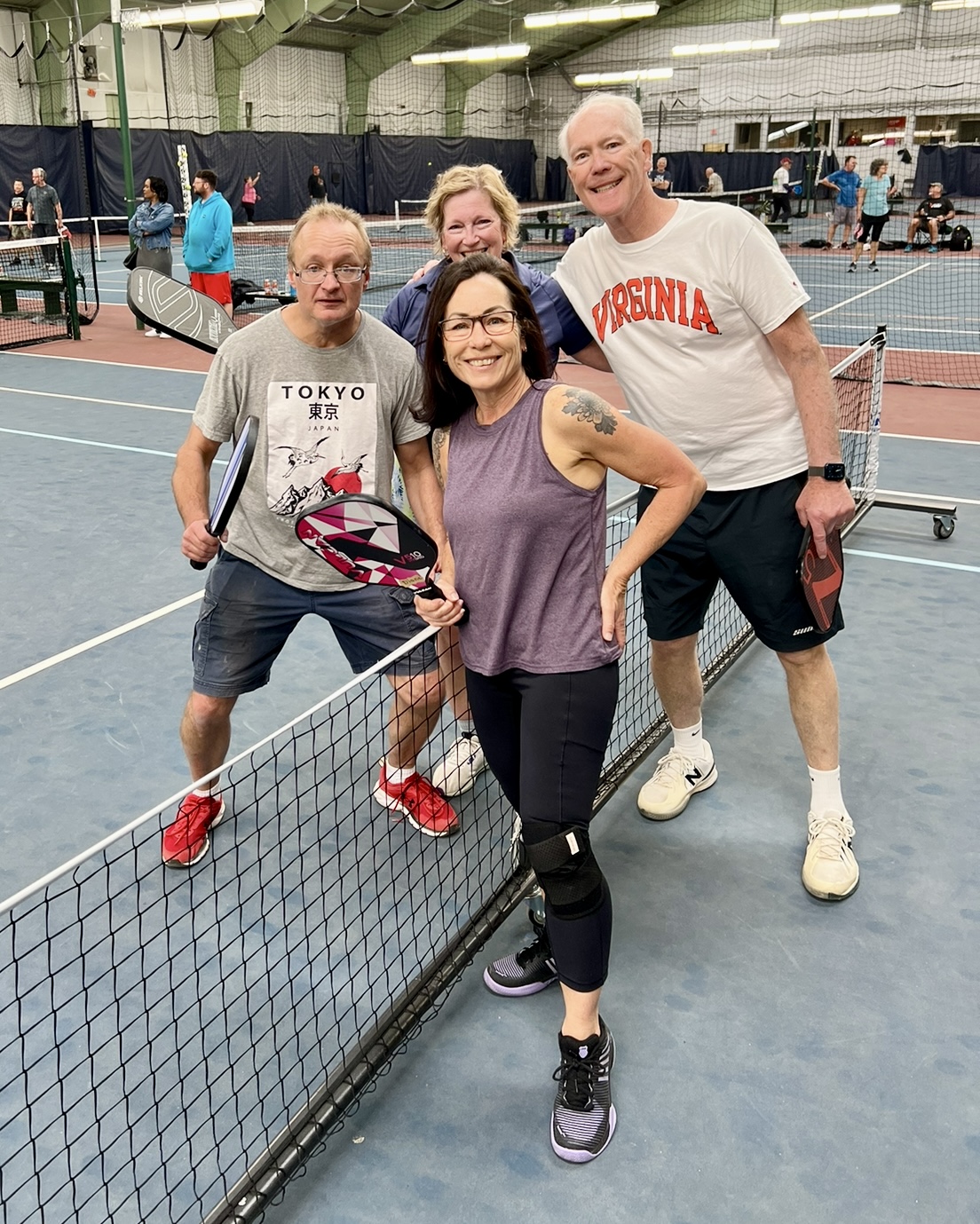What Kind of Pickle Contributes to a Healthy Brain?

What kind of pickles do you like? Dill? Sweet? Bread and butter? Pickled peppers? Pickled beets? Pickled eggs? Pickle balls? Wait! Pickleball? That’s right! Pickleball. Who’d have thought a popular sport would have been named after a gherkin? Well, it wasn’t.
Having nothing to do with pickles, dill or otherwise, the sport, devised in Washington state in 1965 as a backyard game for children, uses a wiffle-like ball with either 24 or 40 holes, paddles that are not exactly like any other and a net only 34 inches high. Credited for creating the game were Joel Pritchard, a political figure in the state, along with his friends, Barney McCallum and Bill Bell.
If we look at the back story behind the back story, we should acknowledge that Pritchard’s and Bell’s children wanted to play badminton, but they couldn’t find a shuttlecock. Pritchard and Bell challenged the kids to invent their own game, so they tried to use a plastic wiffle ball in place of a shuttlecock. The wiffle ball, however, didn’t make it over the high net very easily so they lowered the net and from there, experimentation using trial and error ensued with them trying different net heights, different paddles, court size and so on, until paddleball was born.

Pritchard’s wife is credited with naming the game because it reminded her of what was called a pickle boat crew put together of oarsmen not chosen as premier rowers. Resembling aspects of tennis, ping pong and badminton, because the game first used equipment “leftover” from the other sports, she associated the two and named it pickleball.
Pickleball grew rapidly in popularity in the Pacific northwest—so popular that in 2022 it was designated Washington state’s official sport. Pickleball's appeal seems to lie in its accessibility for people of all ages and levels of fitness, a quick learning curve, the low startup costs, and the opportunity it provides for social interaction. By 2023 the number of players had grown to an estimated 4.8 million across the United States with thousands of pickleball tournaments.
On a recent Saturday in April, AARP Virginia hosted its first Pickleball Social. The rules were adjusted to enable participants, by drawing sticks, to meet and play with new people each game, adding an extra layer of enjoyment to the event. The rules of the tournament allowed for people to continue to play the entire time whether they won or lost. The social was targeted to those age 50-plus to ensure that there weren't too many young ringers or pickleball versions of Caitlin Clark types in attendance making the tournament too competitive.
At the event there were more than a few “picklers,” those who are obsessed with the game, held at the Crosswhite Athletic Club in Lynchburg. And if a team was “pickled,” that was a not good thing because it meant they had been shutout, scoring no points during a game. Were any teams pickled? A few were, but no one cared.

Why should AARP organize such an event? In two words—brain health. Important to the AARP mission of empowering people to choose how to live as they age, caring for one’s health and attention to brain health is an essential component. Promoting brain health is an ongoing priority for AARP. In-person and virtual seminars are available on the “Six Pillars of Brain Health,” which includes being social, engaging the brain, managing stress, exercising, getting restorative sleep and eating right. Pickleball certainly checks most of those boxes.
It is easy to see how the group of three dozen or so participants benefited from the three hours they spent in Lynchburg’s Crosswhite’s Athletic Club that beautiful day. Everyone had a great time and left asking how soon AARP Virginia would be having another Pickleball Social.
Click here to see what other brain health events across the Commonwealth are coming up soon.



